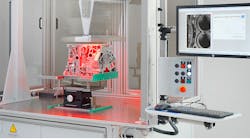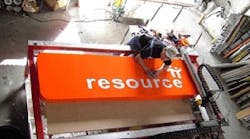We have in this issue the results from our 3rd annual benchmark survey of the U.S. machine shop industry, and the analysis of the numbers that more than 200 of our readers provided.
We made minor changes in the survey from last year. We replaced one or two questions with questions that we thought were more relevant to shop operations, but the survey and its results can be easily compared to previous year’s results.
To facilitate the comparison, this year’s analysis is based on and closely parallels the article we published on last year’s survey with the hope that readers will see the consistency between the numbers.
We launched this survey to help our readers to develop plans and programs to make their shops more competitive and profitable. It is industry-based data — peer data — that you can use to take stock of where your operations are and where you might have deficiencies, then develop strategies to make improvements. And, when you’ve done that, to return to the benchmark data and compare your results to real data from shops that you compete with.
Our survey information is anonymous, so you can’t find specific information on any one competitor, but the data has substance and authority.
The data is specific to operating a machine shop, so you can see how the best-run shops are cutting cycle time and set-up time, and the technologies that they are using to stay ahead of the competition. We have data on the wages that shops pay to their machine operators and set-up personnel, and what shops are seeing in cost increases and collecting in profit.
The report in this month’s issue centers on the performance of the top 20 percent of shops, those shops that are the most profitable and that have the best overall operating results.
In looking at the numbers, it is important to remember that these results are composite figures. While they might combine to identify an “ideal” shop, you have to keep in mind that, as with any perfect example, such a shop really is beyond the reach of most shop managers.
The results from your shop may not align perfectly with the data that we are showing in our report, but keeping track of your individual data is the important point.
We hope you find this data a useful tool that will help you to gauge the performance of your operations, to develop values to aim for and to form your own measurements and programs that will help you to compete more effectively and to put more profit into your pocket.
Besides providing industry-based data on operations, our annual survey is the launch pad for our annual 10 Best Machine Shops program.
While the survey itself is anonymous, we give the people who take the survey the opportunity to nominate themselves for our Best Shops program, and we have begun the work to review the nominees and find shops that have exemplary operations and can serve as models for others.
We will announce this year’s 10 Best Shops at our Machine Shop Workshop at the Doubletree Hotel in Oak Brook, Ill., in November. The workshop will take place November 12 through 14, and you can get details and register for the event on-line at http://www.machineshopworkshop.com/.
There are two bills before the U.S. Congress that are alarming and should be at the forefront of attention for all shop owners and managers and for anyone who runs a small business of any kind.
The National Tooling and Machining (www.ntma.org) held its annual legislative conference in Washington, D.C., in early June, and spent part of the time telling legislators of the harmful effects that the proposed legislation would have.
House Bill 800 is titled the “Employee Free Choice Act,” and significantly broadens the ability of unions’ to organize labor.
The other bill is a proposal to expand the Family Medical Leave Act that would, among other things, mandate an additional seven days of paid sick leave for businesses with 15 or more employees.
Both of these pieces of proposed legislation would be onerous for small businesses, and, as the NTMA recommends, should be vigorously opposed.





